U.S. Supreme Court issues narrow ruling in case concerning impact fees
Upcoming Events
Related News

Key Takeaways
On April 12, the U.S. Supreme Court issued a narrow, unanimous ruling in Sheetz v. El Dorado County, a case focused on the constitutionality of legislatively (rather than administratively) enacted impact fees. In Sheetz, a resident of El Dorado County, California challenged the constitutionality of a traffic mitigation fee required in exchange for a development permit. He argued that because the county did not make an individualized determination that the fee in question met constitutional tests requiring an “essential nexus” and “rough proportionality," it violated the Fifth Amendment’s takings clause.
- County nexus: Exaction or impact fees are an important way for county governments to balance the benefits of growth with its impacts on the pre-existing community. The petitioner's argument would undermine the ability of county governments to legislatively enact impact fees by requiring a case-by-case determination that the fees meet constitutional conditions outlined in Nollan (which requires “essential nexus” between the condition and the government’s land-use interest) and Dolan (which requires the fee to have "rough proportionality" to the development's interest on the land-use interest.)
- NACo advocacy: NACo filed an amicus brief with the Local Government Legal Center in support of El Dorado County, arguing that legislatively enacted, generally applicable impact fees should not be subject to Nollan and Dolan. The brief further emphasized the importance, best practices and ubiquity of legislatively enacted impact fees and stressed that the Court should not require individualized determinations for these fees as doing so would wreak havoc on development. Learn more here.
- The Court’s ruling: In a mixed ruling for counties, the Court ruled in favor of the petitioner that the Nollan and Dolan tests do indeed apply to legislatively enacted impact fees and remanded the case back to the state courts for another look. Importantly, however, the Court declined to address any other arguments made by petitioner, including the question of whether local governments must make individualized determinations regarding impact fees.
Critically, the Court's narrow decision does not prevent local governments from enacting reasonable permitting conditions (including impact fees) via legislation. Moving forward, local governments should ensure that any such fee complies with Nollan and Dolan’s requirements and be prepared for potential legal challenges given the heightened scrutiny required under these precedents.
2024-2025 Supreme Court Term
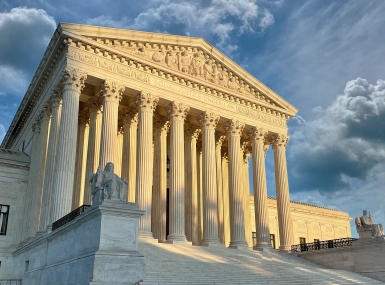
NACo Legal Advocacy: Ames v. Ohio Department of Youth Services
As one of the largest employers in the country, counties have a significant interest in cases like Ames v. Ohio Department of Youth Services (Ames v. Ohio) that could expand county liabilities as employers.

NACo Legal Advocacy: City of Buffalo et al. v. Kia/Hyundai
The question at hand in City of Seattle et al. v. Kia/Hyundai is whether or not the Federal Motor Vehicle Safety Standard preempts state tort claims brought forth by local governments alleging that Kia and Hyundai’s failure to install “reasonable” anti-theft technology constitutes negligence and public nuisance.
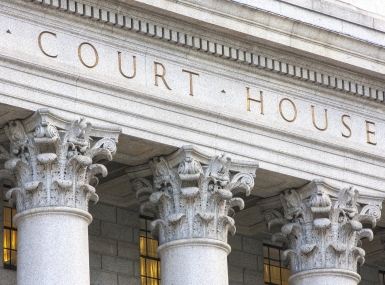
NACo Legal Advocacy: Perttu v. Richards
Perttu v. Richards has implications on the Prison Litigation Reform Act (PLRA) and could increase the amount of Section 1983 inmate-initiated cases against county jails that reach federal court, ultimately resulting in counties having to expend resources on frivolous lawsuits.

NACo Legal Advocacy: McLaughlin Chiropractic Associates, Inc. V. McKesson Corporation
McLaughlin Chiropractic Associates, Inc. V. McKesson Corporation could make it more difficult for counties to challenge FCC orders, many of which have taken steps to preempt and curtail local authority by limiting counties’ abilities to manage their own right of way and assess fair market value permitting and impact fees on providers seeking to construct, modify or extend telecommunications infrastructure in their communities.

NACo Legal Advocacy: San Francisco v. Environmental Protection Agency (EPA)
San Francisco v. Environmental Protection Agency (EPA) has implications for the ability of county governments that own and operate wastewater treatment facilities to comply with National Pollutant Discharge Elimination System (NPDES) permit requirements.

NACo Legal Advocacy: Lackey v. Stinnie
Lackey v. Stinnie will impact the ability of state and local governments to avoid paying litigation fees in a civil rights case if they change their conduct (i.e. repeal a law) after a court has granted a preliminary injunction.

NACo Legal Advocacy: Bondi v. VanDerStok
Garland v. VanDerStok has implications for the ability of county law enforcement to uphold public safety and investigate crimes involving ghost guns.

NACo Legal Advocacy: Stanley v. City of Sanford
Stanley v. City of Sanford will impact the ability of county governments to balance budgets by reducing or eliminating post-employment benefits for disability retirees.
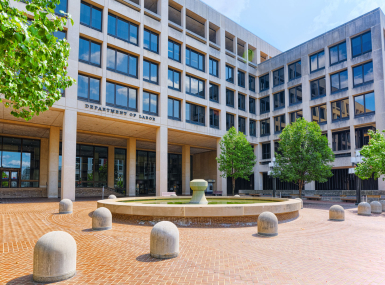
NACo Legal Advocacy: EMD Sales, Inc. v. Carrera
EMD Sales, Inc. v. Carrera could make it more difficult for county governments to prove exemptions under the Fair Labor Standards Act (FLSA), which would increase the potential for costly litigation.

NACo Legal Advocacy: Federal Communications Commission, et al v. Consumers' Research, et al
Federal Communications Commission, et al v. Consumers’ Research, et al. (FCC v. Consumers’ Research) could jeopardize what is known as the Universal Service Fund (USF). Through the USF, the FCC has provided billions of dollars to local governments and our residents, helping provide essential telecommunications and broadband services to unserved and underserved communities. FCC v. Consumers’ Research challenges the FCC’s legal authority behind the USF, putting multiple programs essential to equitable broadband deployment at risk.
Featured Initiative
Supreme Court Advocacy Hub
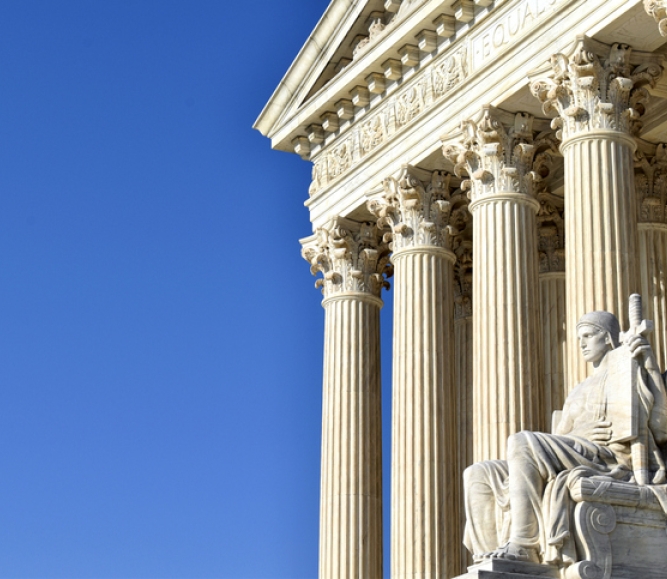
Related News
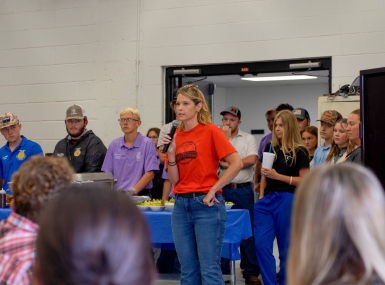
Chamber of commerce program helps keep workers on the job
Audrain County, Mo.'s Workforce Resource Assistance Program has helped employers keep staff in place, reducing turnover and promoting stability.

County leadership guides shared prosperity
There’s no chicken-or-egg debate: Economic mobility is not just a byproduct of growth — it is the result of intentional county governance.
